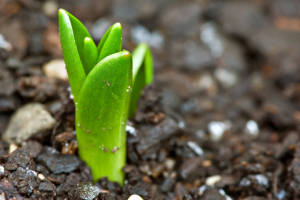“Grief is in two parts. The first is loss. The second is the remaking of life.”– Anne Roiphe
“It’s the song that I sing because I have to.”– Cary Ott, I Wouldn’t Do That To You

Unexpected loss shatters the story of our lives. We are left to stare at the pieces, and at the new absence– twisting our heads to try to understand what happened and what can be done. We hurt and we wander around inside ourselves. And then?
Something else certainly follows, but I’m not sure that it happens in the way Roiphe describes above. How does one remake a life? Is a remake what we really need? Might this second part of the grief thing be more about accepting and being in our changed life vs. remaking it?
Or maybe grief is never really any two parts, stages or any other neatly organized idea. Maybe it’s just a hot, turning mess that we crawl, climb and pull ourselves through as best we can. And maybe the weirdest part of grief is that it’s not outside of our lives at all, but just sharing space with everything else in it.
The book Knocked Up, Knocked Down (2010) by Monica Lemoine chronicles the lives of the author and her husband as they are hit by multiple pregnancy losses. At the memorial for their stillborn son, Lemoine’s husband reads the following letter which speaks to the challenge of needing to both mourn and live:
Dear Son,
Forgive me when I cry. It’s certainly not what I would have taught you to do. Occasionally, I can’t help it. I can’t help it when I see your mother’s face fill with pain. I can’t help it when I replay her phone call in my head. “There’s something wrong with the baby,” she said. I can’t help it when times that were supposed to be so joyous are filled with crushing disappointment–the day of your baby shower, your due date, the three months of paternity leave that we would have spent together, all the baseball games that we would have watched and played. Forgive me when I cry, and know that I’ll never forget the seven and a half months of joy you brought us.
Love, Dad
Dear Son,
Forgive me for the times that I don’t cry. Most of the time, I can’t help but be happy, and it’s hard not to feel guilty about that. I can’t help but be happy when your mother dances in the living room. I can’t help it when family and friends visit and bring us food, prop us up with support, watch football and play ping-pong with us. I can’t help but be happy that I’m married to your mother and knowing that we’ll make it, stay positive, and have more kids in the near future. I can’t help being happy because it’s my nature, and your mother brings it out in me, as she does in everyone else. Forgive me when I don’t cry, and know that I’ll never forget the seven and a half months of joy you brought us.
Love, Dad
This letter moved me the first time I read it and I returned to it later to consider what was so compelling. I do find the immediacy of the grief touching. But what stands out for me in a second look is that it’s a beautifully simple description of what it means to love, lose and then keep the door propped open to whatever feelings come calling.
There is no shying away from emotion in the words spoken by the Dad to his stillborn son. Instead, there is an open acknowledgement of attachment and feeling. He honors the baby who brought joy to their lives and the father-son relationship that exists (even without a living baby to make it tangible to others). He also is open about his considerable pain as well as periods of happiness as he sits with a bewildering absence.
It’s so easy to do a “pile on” after baby loss– giving ourselves a hard time for having a hard time. I hear this from the women and couples I work with in questions such as “am I dwelling on this?” or “how do I stop feeling this way?”. Anxiety about “moving on” or “forgetting/betraying” the baby make emotional movement to the other side (feeling less intense sadness) a landmine too. I remember feeling the same way. There is nothing clear or elegant about the acute grief experience with all of the accompanying pain, fear and confusion. It often makes a mess of us, at least for a while, and we want it to stop. I wish I didn’t know what I look like when I cry and brush my teeth at the same time, but alas, from my time of living with the grief of losing my daughter, I do. It’s just not a graceful time of life.
So I don’t expect anyone to have a composed or enlightened version of their grief. I don’t find it useful to tell people how to feel. But I am likely to suggest that they notice what they feel. I’m also likely to remind people that whatever our emotional state is right now, it will change. The intensity of pain we experience in grief doesn’t stay the same because it can’t. And eventually, at whatever pace we need, some other feeling will appear. The emotional song you are compelled to sing at any given moment may be one that makes you cry or one that makes you smile and the next song may be quite different. It’s enough to keep a heart very busy.
Living with grief can certainly feel messy and chaotic. It may make you feel a bit crazy to have your emotions become so unruly. But it’s still you living a chapter of your life. You may be flooded with feelings about your past and reliving memories sweet or tragic. You may be full of hopes or heart-fluttering fears about your future. These are all signs of life. The next chapter, whatever it is, is going to be more of you living, and by surviving whatever you feel right now in this moment, you’ve already begun.

 Perinatal loss is a huge challenge for any couple to face. When we took vows to stand by our partner for better or for worse, we didn’t picture this. When we saw that second line on the pregnancy test, or heard the excited words from our mate, we had no idea that it would end this way. But, somehow, this is the bus we ended up on and this is the ride we (and our partners) take.
Perinatal loss is a huge challenge for any couple to face. When we took vows to stand by our partner for better or for worse, we didn’t picture this. When we saw that second line on the pregnancy test, or heard the excited words from our mate, we had no idea that it would end this way. But, somehow, this is the bus we ended up on and this is the ride we (and our partners) take.


 “It gets better.”
“It gets better.”
 I was ambivalent about doing a holiday related post. There are certainly other places on the internet to find great articles that address the challenges of this time of year for those who have experienced reproductive loss. They offer useful ideas regarding how to cope with family members, find meaning in the holidays and ways to create your own traditions. These articles can feel like lifesavers for those who are grieving babies during the holiday season. If you’re interested, I would recommend looking at the National Infertility website Resolve or googling “pregnancy/infant loss and holidays.”
I was ambivalent about doing a holiday related post. There are certainly other places on the internet to find great articles that address the challenges of this time of year for those who have experienced reproductive loss. They offer useful ideas regarding how to cope with family members, find meaning in the holidays and ways to create your own traditions. These articles can feel like lifesavers for those who are grieving babies during the holiday season. If you’re interested, I would recommend looking at the National Infertility website Resolve or googling “pregnancy/infant loss and holidays.”